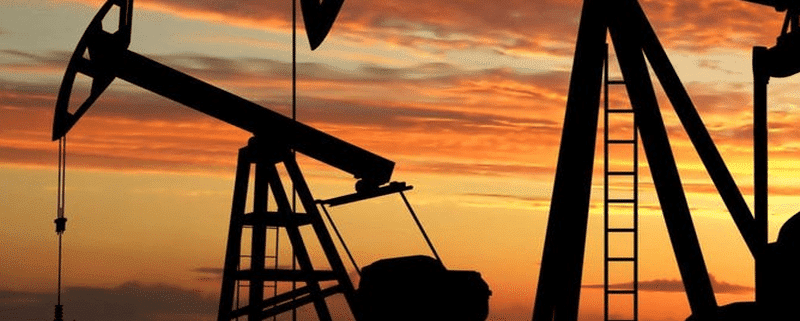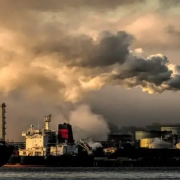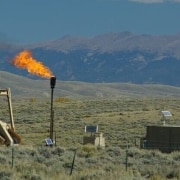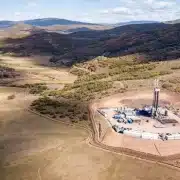Oil and Gas Royalties in Indigenous Territories: Ethical and Legal Issues
The extraction of natural resources such as oil and gas has been a source of economic development for many countries worldwide. However, it also presents profound ethical and legal concerns, particularly when these activities occur in Indigenous territories. Oil and gas royalties, the payments made by companies to landowners for the extraction of natural resources, form a crucial part of this discussion. In the case of Indigenous territories, these royalties are not merely a financial transaction; they intersect with issues of sovereignty, environmental stewardship, cultural preservation, and human rights.
This article delves into the ethical and legal dimensions surrounding oil and gas royalties in Indigenous territories, exploring the complexities of land ownership, consent, environmental sustainability, and the broader impact on Indigenous communities.
The Concept of Oil and Gas Royalties
Oil and gas royalties are payments by companies to landowners or rights holders in exchange for the right to extract and sell natural resources. These payments typically take the form of a percentage of the revenue generated from the sale of oil or gas. The exact royalty rate can vary depending on the terms of the contract, the type of resource, and the jurisdiction in which the extraction takes place.
In Indigenous territories, these royalties represent not just an economic benefit but a complex issue in questions of land rights, governance, and justice. While royalties can bring financial resources to Indigenous communities, the processes through which these agreements are negotiated and the broader implications of resource extraction raise significant ethical and legal concerns.
Historical Context of Resource Extraction in Indigenous Lands
The relationship between resource extraction and Indigenous territories is deeply rooted in colonial history. In many regions, Indigenous peoples have had their lands and resources taken from them without their consent, often through treaties that were either unfairly negotiated or outright violated. These historical injustices continue to influence contemporary discussions about oil and gas royalties, as Indigenous communities seek to reclaim control over their lands and the resources beneath them.
Colonial governments often disregarded Indigenous land tenure systems, viewing the land as terra nullius, or empty land, available for exploitation. This resulted in the displacement of Indigenous peoples and the extraction of resources without consultation or compensation. Today, many Indigenous communities are striving to rectify these historical wrongs by asserting their rights over their territories and demanding a fair share of the revenues generated from resource extraction.
The Principle of Free, Prior, and Informed Consent
One of the most significant ethical and legal frameworks in the context of oil and gas royalties in Indigenous territories is the principle of free, prior, and informed consent (FPIC). FPIC is a cornerstone of Indigenous rights, recognized by international human rights instruments such as the United Nations Declaration on the Rights of Indigenous Peoples (UNDRIP).
FPIC requires that Indigenous communities be fully informed about any proposed development on their lands, that they have the opportunity to participate in decision-making processes, and that they can give or withhold their consent freely, without coercion. This principle aims to ensure that Indigenous peoples have control over what happens on their lands and that they can protect their cultural, spiritual, and environmental values.
In practice, however, the implementation of FPIC is often fraught with challenges. Governments and companies may fail to engage Indigenous communities meaningfully, or they may interpret “consultation” as a mere formality rather than a genuine process of obtaining consent. Moreover, Indigenous communities may face significant pressures, including economic hardship and political marginalization, which can undermine their ability to make truly free and informed decisions.
Sovereignty and Self-Determination
The issue of oil and gas royalties in Indigenous territories is fundamentally linked to the broader question of Indigenous sovereignty and self-determination. For many Indigenous communities, the right to control their land and resources is not just a matter of economic benefit but a reflection of their inherent sovereignty as distinct peoples with the right to govern themselves and their territories.
International law increasingly recognizes the rights of Indigenous peoples to self-determination, including the right to control and manage their natural resources. However, the extent to which these rights are respected in practice varies significantly from country to country. In some jurisdictions, Indigenous communities have gained legal recognition of their land rights and the ability to negotiate directly with companies for resource extraction agreements. In others, governments continue to assert control over Indigenous territories, limiting the ability of communities to exercise meaningful self-determination.
Environmental and Cultural Impacts of Resource Extraction
The extraction of oil and gas in Indigenous territories often has significant environmental and cultural consequences. Indigenous peoples have a deep connection to their lands, which are not only sources of sustenance but also hold spiritual, cultural, and historical significance. The destruction of these lands through resource extraction can have devastating effects on Indigenous communities, threatening their livelihoods, cultural heritage, and way of life.
Oil and gas extraction can lead to deforestation, water contamination, and the destruction of ecosystems that Indigenous peoples depend on for their survival. Moreover, the influx of workers and infrastructure associated with resource extraction can disrupt traditional ways of life, leading to social and cultural disintegration.
The environmental impacts of resource extraction are particularly concerning in the context of climate change. Indigenous peoples are often among the most vulnerable to the effects of climate change, and the extraction and burning of fossil fuels exacerbate these challenges. Many Indigenous communities are at the forefront of environmental protection efforts, advocating for sustainable development practices that respect the land and the environment.
Legal Frameworks Governing Oil and Gas Royalties in Indigenous Territories
The legal frameworks that govern oil and gas royalties in Indigenous territories vary widely across jurisdictions, reflecting different historical, political, and legal contexts. Indigenous communities have recognized land rights and the ability to negotiate directly with companies for royalty agreements. In others, governments retain control over resource extraction in Indigenous territories, limiting the ability of communities to secure fair royalties.
In countries where Indigenous land rights are recognizable, royalty agreements can be an important tool for ensuring that Indigenous communities benefit from resource extraction. These agreements can provide communities with much-needed financial resources to invest in education, healthcare, infrastructure, and other development initiatives. However, the negotiation of royalty agreements is often complex, requiring Indigenous communities to navigate legal, technical, and financial challenges.
In jurisdictions where Indigenous land rights are not recognizable, governments typically control the allocation of resource extraction rights and the distribution of royalties. In these cases, Indigenous communities may receive little to no benefit from the extraction of resources on their lands, and they may be excluded from decision-making processes altogether. This can lead to significant tensions between Indigenous communities, governments, and companies, particularly when resource extraction leads to environmental degradation and cultural loss.
The Role of Governments and Companies
Both governments and companies play critical roles in the negotiation and implementation of oil and gas royalty agreements in Indigenous territories. Governments are responsible for setting the legal and regulatory framework that governs resource extraction, including the recognition of Indigenous land rights and the requirements for consultation and consent. Companies, meanwhile, are responsible for engaging with Indigenous communities, negotiating royalty agreements, and ensuring that their operations comply with legal and ethical standards.
Governments have a responsibility to uphold the rights of Indigenous peoples, including their rights to land, self-determination, and environmental protection. This includes ensuring that Indigenous communities have consultation and that they receive a fair share of the benefits from resource extraction. In many cases, however, governments have prioritized the interests of the oil and gas industry over the rights of Indigenous peoples, leading to conflict and injustice.
Companies, too, have an ethical responsibility to respect the rights of Indigenous peoples and to ensure that their operations do not cause harm to Indigenous lands or communities. This includes adhering to the principle of FPIC, negotiating fair royalty agreements, and minimizing the environmental and social impacts of their activities. Increasingly, companies are recognizing the importance of engaging with Indigenous communities in a respectful and collaborative manner, but challenges remain, particularly when profit motives conflict with the interests of Indigenous peoples.
Case Studies of Oil and Gas Royalties in Indigenous Territories
Several case studies highlight the complex ethical and legal issues surrounding oil and gas royalties in Indigenous territories. For example, in Canada, the Athabasca Chipewyan First Nation has been at the center of debates over oil sands development in northern Alberta. The extraction of oil from the tar sands has brought significant economic benefits to the region, but it has also raised concerns about environmental degradation, health impacts, and the violation of Indigenous land rights.
In the United States, the Navajo Nation has a long history of negotiating royalty agreements for oil and gas extraction on its lands. While these agreements have provided financial resources for the Navajo government, they have also sparked debates about environmental sustainability and the long-term consequences of reliance on fossil fuel extraction.
In South America, Indigenous communities in the Amazon basin have been fighting against oil and gas extraction on their lands for decades. These communities argue that resource extraction threatens their way of life, the health of the Amazon rainforest, and the global fight against climate change.
The Path Forward: Toward Fair and Just Resource Extraction
The ethical and legal issues surrounding oil and gas royalties in Indigenous territories are complex and multifaceted, reflecting broader questions about land rights, sovereignty, environmental justice, and human rights. Moving forward, it is essential that governments, companies, and Indigenous communities work together to ensure that resource extraction is in a manner that respects the rights of Indigenous peoples and promotes sustainable development.
This includes recognizing and upholding the principle of FPIC, ensuring that Indigenous communities receive a fair share of the benefits from resource extraction, and prioritizing environmental protection. It also requires a commitment to addressing the historical injustices that have shaped the relationship between Indigenous peoples and resource extraction, including the recognition of Indigenous sovereignty and land rights.
Ultimately, the path forward must be by a commitment to justice, equity, and sustainability, ensuring that Indigenous communities are to control their lands and resources in a way that aligns with their values, aspirations, and visions for the future.
If you have further questions related to Oil and gas royalties, feel free to reach out to us here.












Leave a Reply
Want to join the discussion?Feel free to contribute!